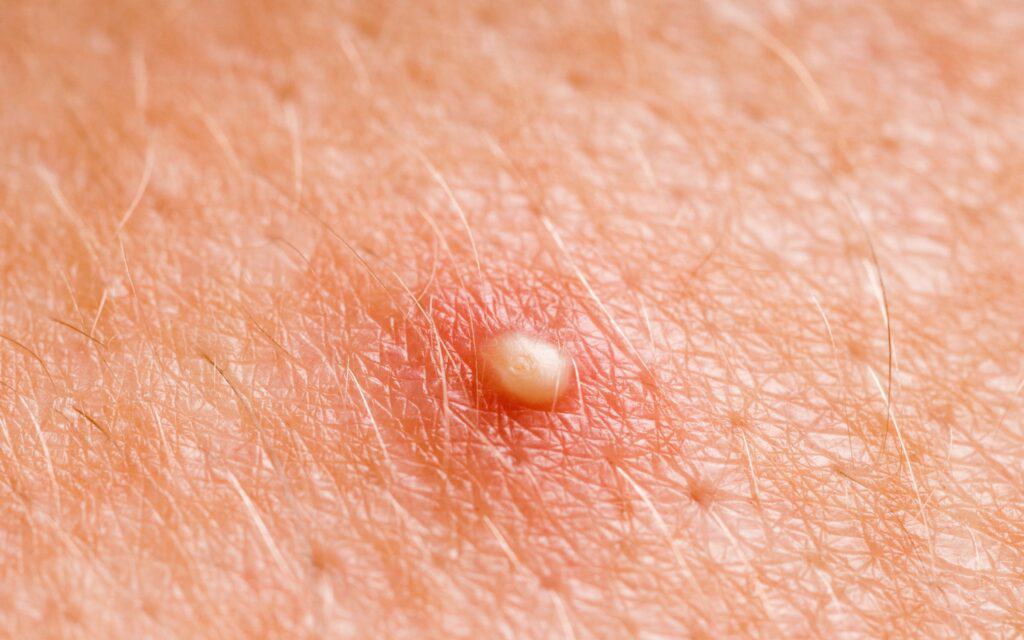Dealing with persistent skin issues such as whiteheads can be a challenging task. These small blemishes, technically a subtype of acne, tend to surface on the skin’s most visible areas – the face, shoulders, chest, and back. This article will explore the causes of whiteheads, their lifespan, various treatments, including home remedies and over-the-counter (OTC) solutions. We’ll also guide you on what to avoid and provide skincare tips to preemptively tackle whiteheads.
What are Whiteheads?
Whiteheads, medically referred to as closed comedones, are small, rounded bumps with a white or flesh-colored surface. They result from the clogging of pores by a combination of dead skin cells, sebum (oil), and bacteria. This plug, being trapped under the skin surface, appears white, giving the condition its colloquial name – “whitehead.”
Causes of Whiteheads
Whiteheads primarily arise due to clogged pores. However, several factors can contribute to this condition:
Hormonal changes:
Fluctuating hormones, especially androgens, can stimulate the overproduction of sebum, leading to clogged pores and whiteheads.
Diet:
Certain foods, primarily those rich in sugars and dairy, might contribute to the emergence of whiteheads.
Poor skincare routine:
Inadequate cleansing and exfoliation can lead to the accumulation of dead skin cells on the skin’s surface, clogging pores.
Certain medications:
Drugs such as steroids, lithium, and androgens can trigger oil production, which can result in whiteheads.
How Long Do Whiteheads Last?
Whiteheads usually clear up between a few days to a week. Nonetheless, the duration can vary depending on an individual’s skin type, lifestyle, and the effectiveness of their skincare regimen
Treatments
Home Remedies for Whiteheads
Here are some easy-to-follow home remedies to help alleviate whiteheads:
1.Proper cleansing: Washing your face twice a day with a gentle cleanser can help remove excess oil and dead skin cells.
2.Exfoliation: Regular exfoliation aids in the removal of dead skin cells that potentially clog pores. Always opt for a gentle exfoliant to avoid skin irritation.
3.Tea tree oil: This natural remedy has antimicrobial properties that can fight against acne-causing bacteria.
4.Honey and cinnamon mask: These two ingredients possess antibacterial properties. Combine them into a paste, apply it to the face, and rinse off after 15-20 minutes.
5.Green tea: Applying green tea, rich in antioxidants, can decrease sebum production and inflammation.
6.Apple cider vinegar: When diluted, apple cider vinegar can balance the skin’s pH and exhibit antibacterial properties.
7.Aloe Vera: Known for its soothing properties, aloe vera can reduce inflammation and hasten the healing process.
Over-the-Counter Options for Whiteheads
If home remedies aren’t effective enough, these OTC options might help:
1.Benzoyl peroxide: This popular acne treatment kills bacteria and helps unclog pores.
2.Salicylic acid: This remedy helps dissolve the debris clogging pores.
3.Retinoids: Available over the counter, retinoids can help unclog pores and prevent whiteheads from forming.
Skincare Tips
Avoid picking or popping whiteheads:
This can result in scarring and further skin infection.
Stay hydrated and maintain a healthy diet:
Consuming plenty of water and a balanced, antioxidant-rich diet can foster healthy skin.
Avoid harsh skincare products:
Choose non-comedogenic, hypoallergenic products that won’t clog pores.
Regular exercise:
Physical activity helps regulate hormones and reduce stress, which can subsequently help control whitehead outbreaks.
Takeaway
The journey to clear skin may be lengthy, but understanding the causes of whiteheads and adopting the right treatments and skincare routine can lead to noticeable improvements. Remember, consistent and gentle care is essential in managing and preventing whiteheads. Seek professional help if home remedies or OTC treatments don’t yield the expected results. Your skin is unique, and sometimes, it might require a specialized approach for optimum health.
